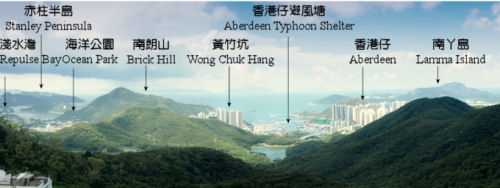Vanguards in Our Streets
Next Magazine (2014.10.23, A003, Second Opinion, Bill Stacey)
Hong Kong is a miracle. A rite of passage for young western bankers in Hong Kong is the junk trip to Lama with the top management from head office. Two decades ago my CEO, an accomplished head of the then biggest bank in Australia, looked at the impressive edifice of South Horizons on Ap Lei Chau as the junk jugged past. He asked how people could live in such dense conditions, observing that there must be a lot of violence with people, especially young men, crammed together.
Of course South Horizons is the firmly middle class home to some of my closest friends and they are not violent at all. Part of the miracle of Hong Kong is that we have developed institutions allowing 7 million people to live peacefully together. Those institutions have allowed people and families to prosper and pursue their diverse visions of a good life. Unless we understand and build on those institutions, we will not gain more freedom from current efforts.Ask any disinterested observer, whether Hong Kong or Singapore is the more Chinese city, and most will tell you that Hong Kong is more Chinese. This is not just demographics, culturally Hong Kong preserves many of the civic institutions like hospitals, temples, clan associations and trade groups that thrived alongside colonial rule. These institutions and cultural practices come mostly from the hinterland of Southern China, and many predate the arrival of the British.All around Hong Kong were largely self-governing villages that had at best sporadic contact with the imperial bureaucracy. These traditions of local control continued under the British, who for many years left the Chinese population to manage their own affairs. The institutions of the rule of law were gradually adopted by the local population as they proved superior for the increasingly regional commerce that is the lifeblood of the city.
Francis Fukuyama has written that “the most successful non-Western countries today are precisely those that had the most developed indigenous institutions prior to contact with the west.” This is truer of the southern Chinese population in Hong Kong than anywhere else.It is simplistic to think that calls for institutional reform come only from a desire for a western style of democracy. These calls must be seen in their wider social and economic context. Historically, changes in economic relations and the “means of production” often determined where democracy was to emerge. In Hong Kong, an increasingly globalized economy, the importance of mobile human capital, shrinking economies of scale brought about by technological innovations, contract manufacturing in China independent of design, a growing finance and services sector and the declining importance of the property sector will inevitably change the balance of economic power and people’s aspirations. Hong Kong people are no longer sojourners with village homes elsewhere or travelers using the city as a transit station. People are less reliant than ever on large companies for employment. Political institutions have to adapt to those changes or risk decline.These economic changes all point to more decentralized decision making and local autonomy. All around us companies are breaking up to become more efficient, and functions of the state are taken up by more responsive private organizations.Hong Kong’s institutions must adapt to these changes. It is odd to see an “establishment” patronized by a nominally Marxist party in denial of the changing economic base as reflected by the youthful vanguard occupying our streets.To suggest, as Rita Fan has this week, that the occupiers’ expressed desire for self-rule on local affairs (not sovereignty) comes from foreign influence shows a preposterous ignorance of local history and current economics. These calls are a modern reflection of southern Chinese culture with deep roots and clear economic causes. That is why they have garnered wide support and been conducted as a ritual with a uniquely Hong Kong civility.
Bill Stacey is in his 10th year as a resident of Hong Kong and is Chairman of theLion Rock Institute.We are now on Facebook http://www.facebook.com/

